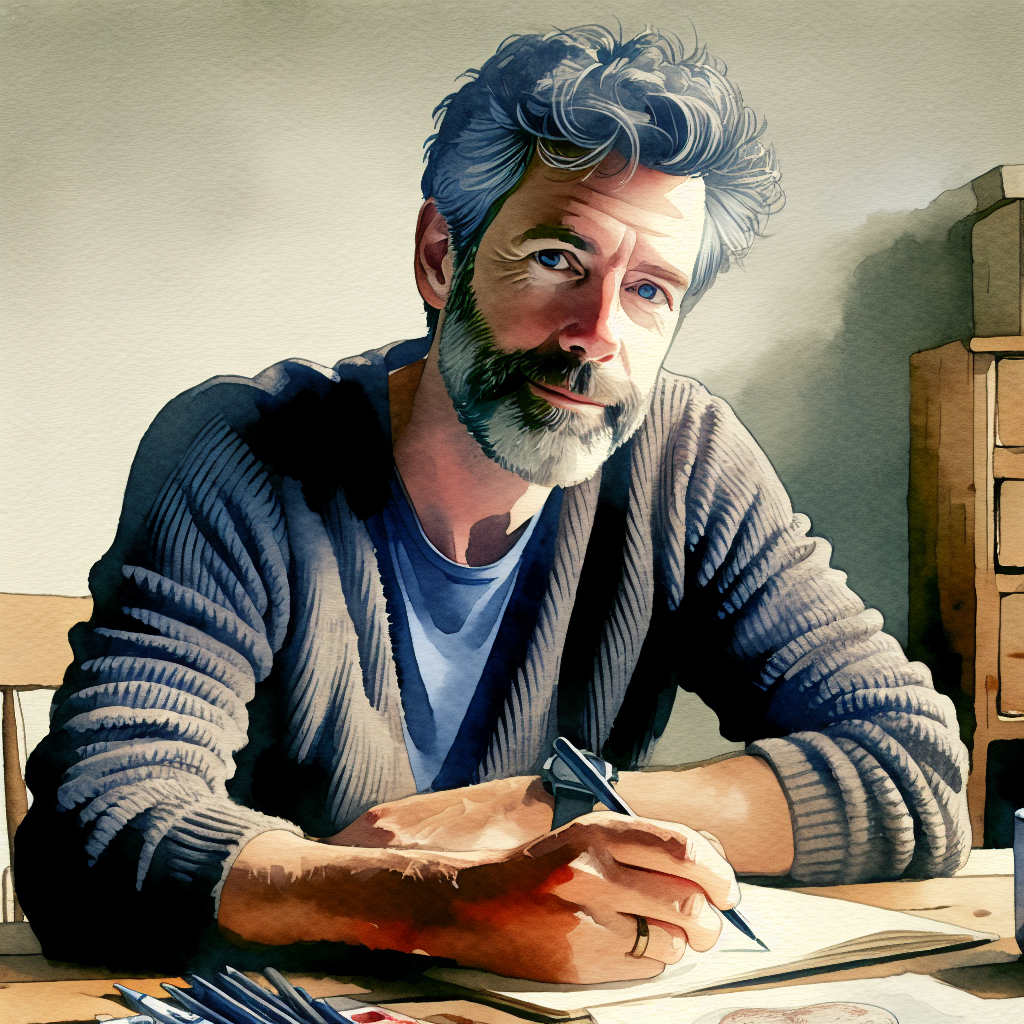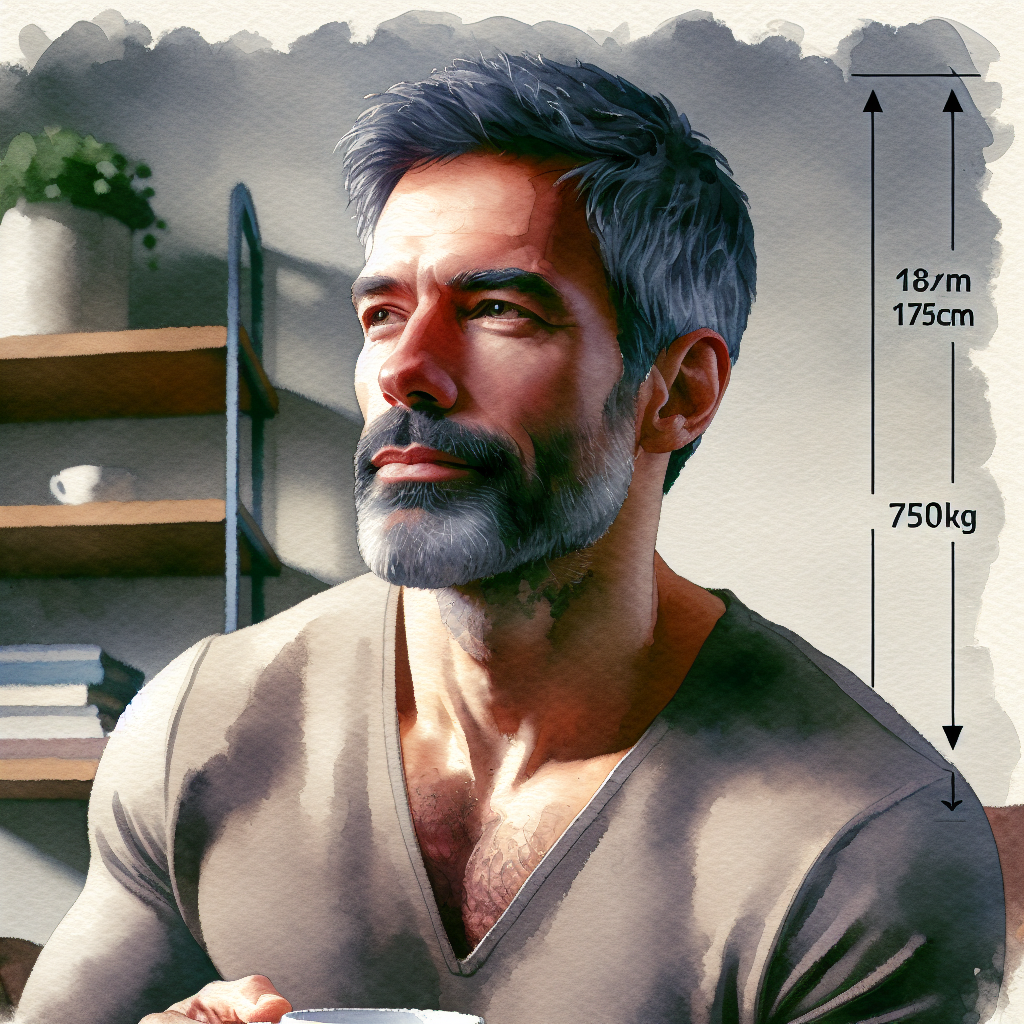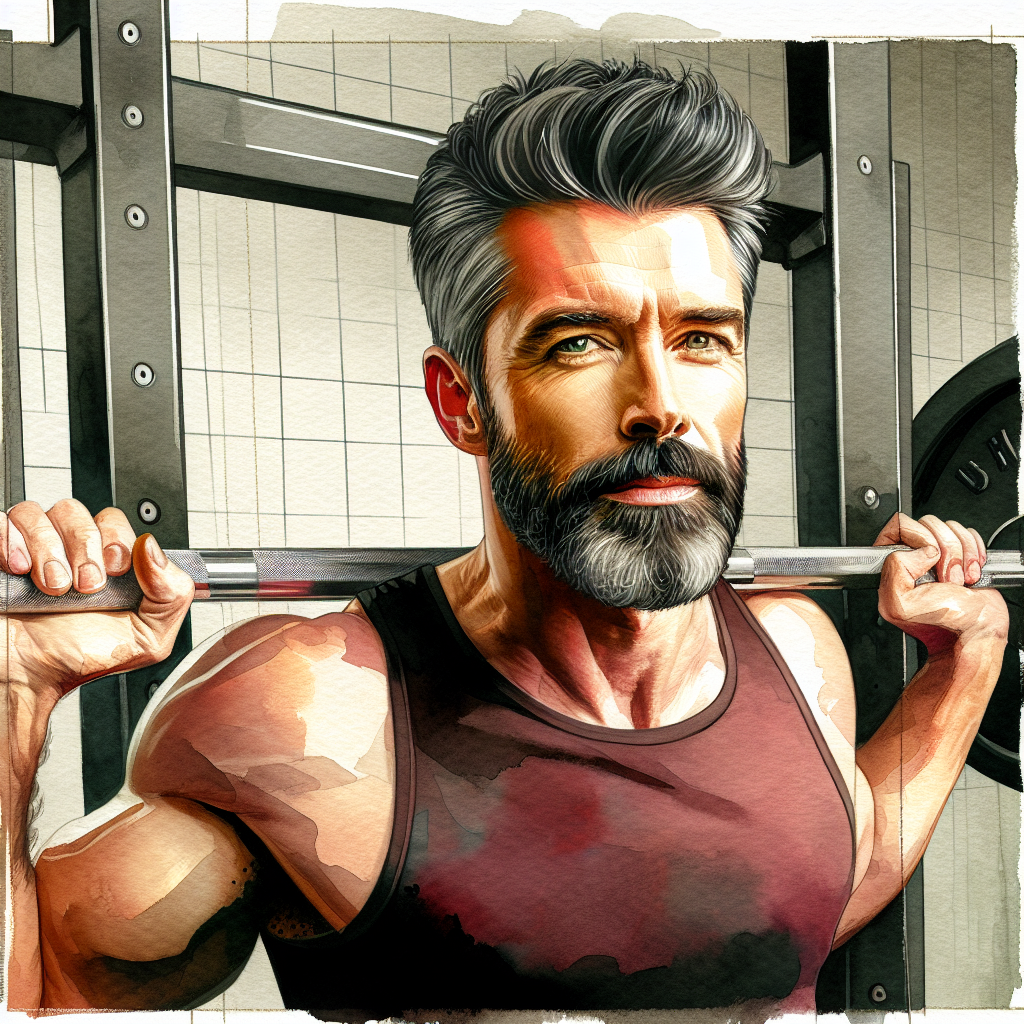Below you will find pages that utilize the taxonomy term “Mental Health”
Overcoming Initial Doubts About Professional TRT

When I first considered starting Testosterone Replacement Therapy (TRT), I’ll admit, I had my doubts. I mean, who wouldn’t? The idea of injecting yourself with hormones sounds like something out of a sci-fi movie, not something a regular lad from Dublin would do. But here’s the thing: sometimes, you’ve got to take a leap of faith, especially when it comes to your health.
The Doubts That Held Me Back
I remember sitting in the doctor’s office, staring at the prescription for Sustanon and HCG, thinking, “Is this really for me?” I’d spent years feeling run down, struggling with low energy, and battling anxiety that Lexapro only partially helped. But the idea of TRT felt… extreme. What if it didn’t work? What if it made things worse? And let’s be honest, the thought of needles didn’t exactly thrill me either.
Tracking Progress: The First Month with a TRT Practitioner
![]()
It’s been a month since I started working with a TRT practitioner, and let me tell you, it’s been a rollercoaster. Between the freezing December weather here in Ireland and the chaos of the holidays, tracking my progress has been both a challenge and a revelation.
The First Steps
When I first walked into the clinic, I was a bit nervous. I mean, who wouldn’t be? You’re handing over your health to someone else, hoping they know what they’re doing. But my practitioner, let’s call him Dr. O’Connor, was a straight shooter. No nonsense, just facts. He explained the process, the potential side effects, and what I could expect in the first few weeks.
How My First Consultation with a Specialist Went

As I sat in the waiting room, flipping through a dog-eared magazine from 2019, I couldn’t help but feel a mix of nerves and anticipation. This was it—my first consultation with a specialist about my TRT journey. The room was quiet, save for the occasional beep from the receptionist’s computer and the distant hum of a vacuum cleaner. It felt like the calm before the storm, or maybe just the calm before a very informative chat.
Reflecting on My Early TRT Choices

It’s a chilly November morning here in Ireland, and as I sit with my cup of tea, I can’t help but reflect on the journey I’ve been on with TRT. The rain’s lashing against the window, and the kids are already arguing over who gets to use the iPad first. Ah, the joys of parenthood! But today, I want to take you back to where it all began—my early days on TRT.
The Role of Hormones in Mental Health During Isolation

Ah, isolation. It’s a word that brings back memories of lockdowns, endless Zoom calls, and the occasional existential crisis. For many of us, those days were a rollercoaster of emotions, and if you’re anything like me, you might’ve noticed your mental health taking a hit. But here’s the kicker: it’s not just the lack of social interaction or the monotony of being stuck indoors—your hormones play a massive role in how you cope (or don’t cope) during isolation.
Understanding Low Testosterone: Researching During Lockdown

Ah, lockdown. The word alone brings back memories of endless Zoom calls, sourdough starters, and trying to keep the kids entertained while working from home. For many of us, it was a time of reflection and, let’s be honest, a fair bit of stress. But did you know that lockdown might have also had an impact on your testosterone levels? Let’s dive into the research and see what we can uncover.
How COVID Lockdowns Inspired Self-Reflection

The COVID lockdowns were a strange time for all of us. For me, it was a period of forced introspection, a time when the world slowed down, and I had no choice but to confront the things I’d been avoiding. As an Irishman who’s never been great at sitting still, it was a challenge. But looking back, it was also a gift—one that helped me refocus on what truly matters: my mental health, my family, and yes, even my testosterone levels.
Reflecting on St. Patrick's Day 2020: The Taoiseach Announces Lockdowns

St. Patrick’s Day 2020. It’s a date that’s etched into the memory of every Irish person. The day the craic was supposed to be mighty, the parades were ready to roll, and the pubs were primed for a roaring trade. But instead, it became the day the Taoiseach, Leo Varadkar, stood in Washington D.C. and announced that Ireland was going into lockdown. I remember it like it was yesterday.
Reflecting on the Second Year of My TRT Journey

Two years ago, I took the plunge into the world of Testosterone Replacement Therapy (TRT). It’s been a wild ride, lads—full of ups, downs, and a fair few “what the hell is happening now?” moments. As I sit here with a cuppa, watching the rain lash against the window (classic Irish weather, eh?), I can’t help but reflect on how far I’ve come.
The Good, the Bad, and the Bloody Awkward
Let’s start with the good stuff. TRT has been a game-changer for me. My energy levels are more consistent, my workouts feel more productive, and I’ve even managed to shift a bit of the dad bod that had been clinging on like a limpet. But it hasn’t all been smooth sailing. There were times when my hormones felt like they were on a rollercoaster, and I’d be lying if I said I didn’t have a few meltdowns along the way. (Jenny can vouch for that—she’s had to deal with me pacing the kitchen at 2 a.m., ranting about how I’m either too hot or too cold.)
How My Mindset Shifted After Starting TRT

It’s been a wild ride since I started TRT (Testosterone Replacement Therapy) back in April. I’ll be honest, I didn’t know what to expect. I’d heard all the hype—more energy, better focus, improved mood—but I was skeptical. After all, I’d been on Lexapro for years to manage my anxiety, and while it helped, it also left me feeling a bit… flat. Like I was just going through the motions. But TRT? That was a whole new ballgame.
The Role of Support Networks in My TRT Journey

When I first started my TRT journey, I didn’t fully grasp how much of a team effort it would be. Sure, I knew I’d be working closely with my doctor, but I hadn’t considered the broader support network that would become my lifeline. From my family to online communities, these networks have been instrumental in helping me navigate the ups and downs of TRT.
Family: The Backbone of My Support System
My wife, Jenny, has been my rock throughout this journey. She’s the one who encouraged me to seek help when I was struggling with low energy and mood swings. Her support didn’t stop there; she’s been my cheerleader, my sounding board, and sometimes, my reality check. When I started TRT, she was the one who reminded me to stay patient and trust the process.
How Journaling Helped Me Track My TRT Progress

When I first started TRT (Testosterone Replacement Therapy) back in 2021, I was a bit of a mess. My energy levels were all over the place, my mood swings were like a rollercoaster, and I couldn’t tell if the changes I was feeling were from the TRT or just life being life. That’s when I decided to start journaling. And let me tell you, it’s been a game-changer.
Why TRT Isn't Just About Testosterone

When I first started TRT, I thought it was all about getting my testosterone levels back to where they should be. But as I’ve journeyed through this process, I’ve realized it’s about so much more. It’s not just a hormone fix; it’s a lifestyle overhaul.
The Mental Health Connection
One of the most surprising aspects of TRT has been its impact on my mental health. Before TRT, I was on Lexapro to manage my anxiety. While it helped, it also came with its own set of side effects. TRT has been a game-changer in this regard. It’s not just about feeling physically stronger; it’s about feeling mentally resilient.
The Unexpected Social Benefits of TRT

When I first started TRT (Testosterone Replacement Therapy), I was focused on the physical benefits—more energy, better muscle tone, and improved libido. But what I didn’t expect were the social benefits that came along with it. Let me tell you, lads, it’s been a game-changer.
Confidence Boost
One of the first things I noticed was a significant boost in my confidence. Before TRT, I’d often second-guess myself in social situations. Whether it was at work, at the pub, or even just chatting with the neighbours, I’d feel a bit… off. But after a few weeks on TRT, I found myself walking into rooms with my head held high. It’s not that I suddenly became the life of the party, but I felt more comfortable in my own skin.
Lessons from My First Year of TRT

It’s hard to believe it’s been a year since I started TRT. Time flies when you’re not constantly feeling like a bag of spuds dragged through a hedge backwards. For those of you who’ve been following my journey, you’ll know it hasn’t been all sunshine and rainbows, but it’s been worth every step. Here’s what I’ve learned in my first year of TRT.
The Good
Let’s start with the positives, because who doesn’t love a bit of good news? The most noticeable change has been my energy levels. Before TRT, I was constantly knackered. I’d wake up feeling like I’d been hit by a bus, and by midday, I was ready for a nap. Now, I’m up at the crack of dawn, ready to take on the day. It’s like someone flipped a switch in my brain.
How Testosterone Affects Emotional Resilience

How Testosterone Affects Emotional Resilience
Ah, emotional resilience. It’s one of those things you don’t really think about until life throws a curveball your way. For me, that curveball came in the form of anxiety and stress, which I’ve been managing with the help of TRT (125mg Sustanon weekly plus HCG) and, at one point, Lexapro. But let’s not get ahead of ourselves. Today, we’re diving into how testosterone affects emotional resilience, and I’ll be sharing some personal anecdotes along the way.
Balancing TRT with Work, Family, and Life

Life is a juggling act, isn’t it? Between work deadlines, school runs, and trying to squeeze in a bit of ‘me time,’ it’s a wonder any of us get through the day. Throw testosterone replacement therapy (TRT) into the mix, and suddenly, you’ve got another ball to keep in the air. But here’s the thing—it’s not impossible. In fact, with a bit of planning and a dash of Irish wit, you can make it work. Let me tell you how.
A Year on TRT: Transformations and Lessons Learned

It’s hard to believe it’s been a full year since I started TRT. Time flies when you’re not constantly battling brain fog, fatigue, and the general malaise that comes with low testosterone. I’ll be honest—when I first started this journey, I didn’t know what to expect. I was hopeful, sure, but also a bit skeptical. Could a weekly injection really turn things around for me? Spoiler alert: it did, but not without a few bumps along the way.
Reflecting on My Mental Health Six Months on TRT

Six months ago, I started testosterone replacement therapy (TRT). At the time, I was a bit of a mess—low energy, brain fog, and anxiety that felt like it was running my life. Fast forward to today, and I’m sitting here with a cup of tea (yes, tea—I’m Irish, after all) reflecting on how far I’ve come. It’s been a journey, and I want to share it with you.
Three Months on TRT: Adjusting to My New Normal

It’s been three months since I started Testosterone Replacement Therapy (TRT), and I’ve got to say, it’s been a wild ride. If you’ve been following along, you’ll know I’m not one to sugarcoat things. So, let’s dive into the good, the bad, and the downright weird of adjusting to my new normal.
The Energy Boost
One of the first things I noticed was the energy boost. It’s like someone flipped a switch. I’m not talking about bouncing-off-the-walls energy, but a steady, consistent flow that keeps me going throughout the day. It’s been a game-changer, especially with two young kids running around. Sarah and Adam have more energy than a GAA team on match day, so keeping up with them has been a lot easier.
The Role of Hormones in Mental Health During Isolation

Ah, isolation. It’s a word that brings back memories of lockdowns, endless Zoom calls, and trying to explain to my kids why they couldn’t see their friends. For many of us, those days were a mental health rollercoaster. But have you ever stopped to think about how your hormones played a role in all of that? Let’s dive into the science—and a bit of Irish craic—to understand how hormones like testosterone and cortisol can mess with your head when you’re stuck at home.
How My Life Has Changed Six Months Into Professional TRT
Six months ago, I made the decision to start professional Testosterone Replacement Therapy (TRT). It wasn’t a decision I took lightly, but after years of feeling like I was running on empty, I knew something had to change. Now, half a year in, I can confidently say that TRT has been a game-changer for me. Let me walk you through how my life has transformed.
The Energy Boost
Before TRT, I felt like I was dragging myself through the day. Even simple tasks felt like climbing a mountain. Now, I wake up with a spring in my step. The energy boost has been incredible. I’m not just talking about physical energy, though that’s been a huge part of it. Mentally, I feel sharper, more focused. It’s like someone turned the lights back on in my brain.
The Role of Mental Health Support While on TRT

As I sit here, sipping on a cup of Barry’s Tea, I can’t help but reflect on the journey I’ve been on with TRT. It’s been a rollercoaster, to say the least. The physical changes are one thing, but the mental and emotional shifts? That’s where the real challenge lies. Today, I want to talk about the role of mental health support while on TRT, because let’s face it, it’s not just about the injections and the blood tests—it’s about keeping your head above water too.
Month 3 on TRT with a Practitioner: Settling into a Routine

Well, lads, here we are—three months into my TRT journey, and I’m finally starting to feel like I’ve got a handle on things. It’s been a bit of a rollercoaster, but I’m settling into a routine now, and I’ve got to say, it’s making a world of difference. Let me take you through the highs, the lows, and the lessons learned so far.
The Routine: Finding My Groove
When I started TRT back in April, I was a bit all over the place. Between figuring out the right dosage, managing the injections, and dealing with the occasional mood swings, it felt like I was constantly playing catch-up. But now, three months in, I’ve got a solid routine going, and it’s made a massive difference.
Addressing Anxiety About Long-Term TRT Commitment

Ah, the joys of summer in Ireland. The sun’s been out more than usual this July, and I’ve been making the most of it with Jenny and the kids. Sarah and Adam have been running around the garden like mad things, and I’ve been trying to keep up. But you know what’s been on my mind lately? The long-term commitment to TRT. It’s a big decision, and I get why some lads feel anxious about it. So, let’s have a chat about it, shall we?
Why a Professional Approach to TRT Made All the Difference

When I first started looking into Testosterone Replacement Therapy (TRT), I was a bit like a bull in a china shop. I thought I could just wing it, maybe read a few forums, and figure it all out on my own. But let me tell you, that approach was about as effective as a chocolate teapot. It wasn’t until I took a professional approach to TRT that things really started to turn around for me.
Month 1 with a TRT Practitioner: Early Results

It’s been a month since I started working with a TRT practitioner, and let me tell you, it’s been a wild ride. For those of you who’ve been following my journey, you’ll know I’ve been open about my struggles with low testosterone and anxiety. After years of feeling like I was running on empty, I finally decided to take the plunge and explore TRT. And now, a month in, I’m ready to share the early results.
My First Appointment with a TRT Specialist

It was a grey, drizzly morning in June 2020 when I walked into the clinic for my first appointment with a TRT specialist. The weather felt fitting—like the universe was setting the tone for what I expected to be a serious, life-changing conversation. I’d been wrestling with low energy, brain fog, and a general sense of ‘what’s the point?’ for months. After a bit of Googling (and a few too many late-night Reddit rabbit holes), I decided it was time to get my testosterone levels checked.
Nine Months After Lockdowns: Trying Underground Labs for TRT

It’s been nine months since the world went into lockdown, and like many of you, I’ve been navigating the ups and downs of life in a pandemic. For me, that’s meant juggling TRT (125mg Sustanon weekly plus HCG), managing anxiety without Lexapro, and trying to keep my sanity while homeschooling Sarah and Adam. Oh, and let’s not forget the endless Zoom calls that make me question why I ever complained about commuting.
The Psychological Impact of Low Testosterone During Isolation

As we navigate through these unprecedented times of isolation, it’s crucial to talk about something that’s often overlooked: the psychological impact of low testosterone. I’m Steve, a 41-year-old Irishman, and I’ve been on TRT (Testosterone Replacement Therapy) for a while now. Let me tell you, the connection between testosterone levels and mental health is more significant than most people realize.
The Isolation Effect
Isolation can be tough on anyone, but for men with low testosterone, it can be particularly challenging. Testosterone isn’t just about muscle mass and libido; it plays a vital role in our mood, energy levels, and overall mental well-being. When you’re stuck at home, away from your usual routines and social interactions, these effects can become even more pronounced.
How COVID Lockdowns Changed My Priorities

It’s April 2020, and Ireland is in the thick of its first COVID-19 lockdown. The weather’s been all over the place—one minute it’s sunny, the next it’s lashing rain. Typical Irish spring, really. But this time, it’s different. The streets are eerily quiet, the pubs are closed, and the only sound you hear is the occasional Garda car driving by, reminding us to stay home. For someone like me, who thrives on routine and social interaction, this has been a massive adjustment.
Doomscrolling and Depression During the Pandemic: Exploring Options

It’s March 2020, and the world feels like it’s falling apart. The pandemic has us all locked down, and the only thing keeping us connected is our phones. But let’s be honest, most of us aren’t using them to stay connected—we’re doomscrolling. You know the drill: endless news updates, rising death tolls, and that sinking feeling in your gut that things are only going to get worse. Sound familiar? Yeah, I thought so.